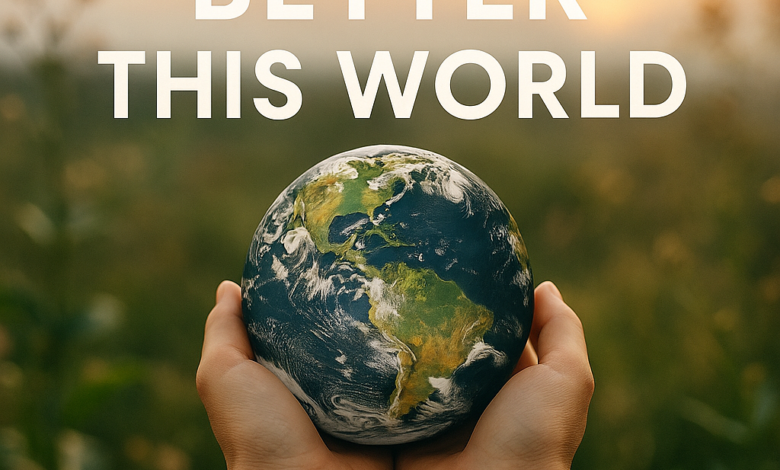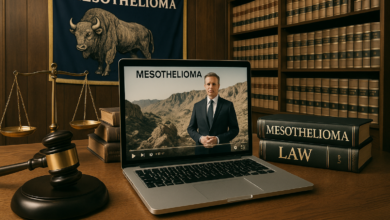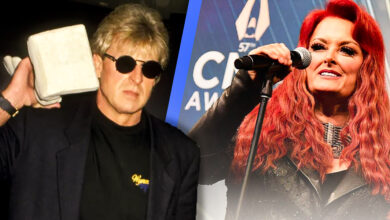Better This World.com: How We Can All Contribute to a Brighter Future

The world we live in today is filled with incredible beauty and potential, but it’s also facing a variety of challenges. From climate change to social injustice, the need for change has never been more urgent. While it’s easy to feel overwhelmed or helpless in the face of these problems, the truth is that each of us has the power to help better this world.com. Whether through small, everyday actions or larger, more significant initiatives, we all play a part in shaping the future. This article explores how we can all make a meaningful difference in the world, no matter who we are or where we come from.
The Power of Working Together: Why Collective Action Matters
One of the most important things we can do to better this world is to recognize that no single person can do it alone. The problems we face are interconnected, and it takes the collective effort of communities, organizations, and governments to create lasting change. While individual actions matter, it’s when we join forces that we can truly make an impact.
Changing Systems, Not Just Behaviors
We often focus on personal responsibility when it comes to making the world a better place, and for good reason—our choices do matter. However, to truly make a difference, we also need to change the systems that underpin many of the problems we face. From economic inequality to environmental destruction, these systems need to be reformed, and that requires collective action. It’s not just about recycling or reducing waste; it’s about advocating for policies that protect the planet and ensure fairness for everyone.
One way to start is by supporting movements and causes that push for change. From fighting for climate action to demanding better healthcare or education, movements that promote social justice have historically been driven by people coming together. When individuals unite for a common goal, they can often overcome even the most entrenched powers that perpetuate injustice. Working together, we can change not only the world around us but the very systems that govern our lives.
Volunteering: The Ripple Effect of Small Acts
Another powerful way to better this world is through volunteering. It’s easy to think that our contributions won’t matter, but the truth is that every small action counts. Whether you’re volunteering at a local food bank, tutoring children, or helping clean up your neighborhood park, you’re creating a ripple effect that can make a difference in the lives of others.
Volunteering also has the potential to transform you. By engaging with people from different walks of life and working together toward a common cause, you gain a deeper understanding of the challenges people face. It fosters empathy and compassion, qualities that are essential for building a better, more connected world. And when you volunteer, you’re not just helping individuals; you’re strengthening communities as a whole.
Tackling Environmental Challenges: A Step Towards Bettering This World
If we truly want to better this world, we must prioritize environmental sustainability. Our planet is facing unprecedented challenges—rising temperatures, deforestation, pollution, and loss of biodiversity—many of which have been caused by human activity. The good news is that every one of us can contribute to the solution.
Sustainable Living: Small Changes, Big Impact
You might be thinking, “What difference does it make if I stop using plastic straws or buy eco-friendly products?” But here’s the thing: small, consistent actions can lead to big changes when everyone gets involved. By choosing to live more sustainably—whether it’s using reusable bags, cutting down on water usage, or choosing products with less packaging—you’re contributing to a larger shift toward a more sustainable future.
It’s not just about individual actions, either. When we support businesses and policies that prioritize sustainability, we’re helping to create a culture that values the planet. By making eco-conscious choices, we can inspire others to do the same, creating a ripple effect that helps spread sustainable practices across society.
Policy Change: Advocating for a Greener Future
While individual action is crucial, we also need to advocate for broader policy changes to tackle environmental issues. Whether it’s pushing for stronger climate change policies, supporting clean energy initiatives, or demanding corporate accountability, we need to hold our governments and businesses accountable for their environmental impact. Policy change can be difficult, but it’s essential if we want to ensure a livable planet for future generations.
Organizations that advocate for environmental protection, like Greenpeace and 350.org, show us that collective pressure can lead to real change. By joining these efforts, participating in campaigns, or simply voting for leaders who prioritize the environment, we can influence the policies that shape our future.
The Role of Education: A Key to Creating Positive Change
Education is one of the most powerful tools we have to better this world. When people are educated, they’re better equipped to make informed decisions, solve problems, and advocate for change. Unfortunately, not everyone has equal access to quality education, and that’s a problem we need to address if we want to create a more just world.
Equal Access to Education: Breaking the Cycle of Inequality
Education is a key driver of social mobility. By ensuring that all children, regardless of their socioeconomic background, have access to high-quality education, we can break the cycle of poverty and inequality. Education provides individuals with the skills they need to improve their lives, support their families, and contribute to society in meaningful ways. When more people are educated, they’re empowered to tackle challenges, advocate for their rights, and create positive change.
Moreover, education fosters critical thinking, creativity, and empathy—all essential qualities for addressing the world’s complex problems. It encourages people to think beyond themselves and consider the impact of their actions on others. If we want to create a better world, we must prioritize education for all.
Lifelong Learning: Staying Engaged and Informed
Bettering the world isn’t a one-time effort—it’s an ongoing process that requires continuous learning and growth. Lifelong learning ensures that we remain engaged with the world around us and stay informed about the issues that matter. Whether it’s reading books, attending workshops, or simply staying updated on current events, learning allows us to stay adaptable and responsive to the challenges of our time.
When we engage in lifelong learning, we not only grow as individuals but also become better equipped to inspire others to make a difference. The more we learn, the more we understand the complexities of the world—and the better we can work toward solutions that make it a better place for everyone.
The Power of Kindness: Changing the World One Act at a Time
At the heart of all these efforts lies one simple yet powerful concept: kindness. While it’s easy to get caught up in the big, global issues, the truth is that small, everyday acts of kindness can have a profound impact. Whether it’s a smile to a stranger, helping a friend in need, or standing up for someone who’s being treated unfairly, kindness is the glue that holds societies together.
Building Empathy Through Kindness
Kindness and empathy go hand in hand. Empathy is the ability to understand and share the feelings of others, and it’s a key driver of positive change. When we approach people with empathy, we create an environment where people feel valued and understood. This, in turn, encourages cooperation, collaboration, and mutual support—all essential components of a better world.
By practicing kindness in our daily lives, we not only make a positive impact on those around us but also set an example for others to follow. Kindness is contagious. When we show compassion, we inspire others to do the same, creating a ripple effect that can spread across entire communities.
Conflict Resolution: Creating Peace Through Compassion
Conflict is an inevitable part of life, but it’s how we handle conflict that determines whether it leads to division or resolution. Practicing compassion and understanding can help reduce tensions and promote peaceful solutions. By taking the time to listen, empathize, and collaborate, we can turn disagreements into opportunities for growth and learning.
Compassionate conflict resolution is an important skill that can be applied in all areas of life—from personal relationships to global diplomacy. By embracing compassion, we can reduce hostility and build a more peaceful, cooperative world.
Conclusion: Together, We Can Better This World
The challenges facing our world may seem daunting, but the good news is that we all have the power to make a difference. By taking responsibility for our actions, supporting each other, and working together, we can create a better future for ourselves and future generations. Whether through small acts of kindness, advocating for policy change, or living more sustainably, each one of us has a role to play in bettering this world.
Let’s take the first step together.



